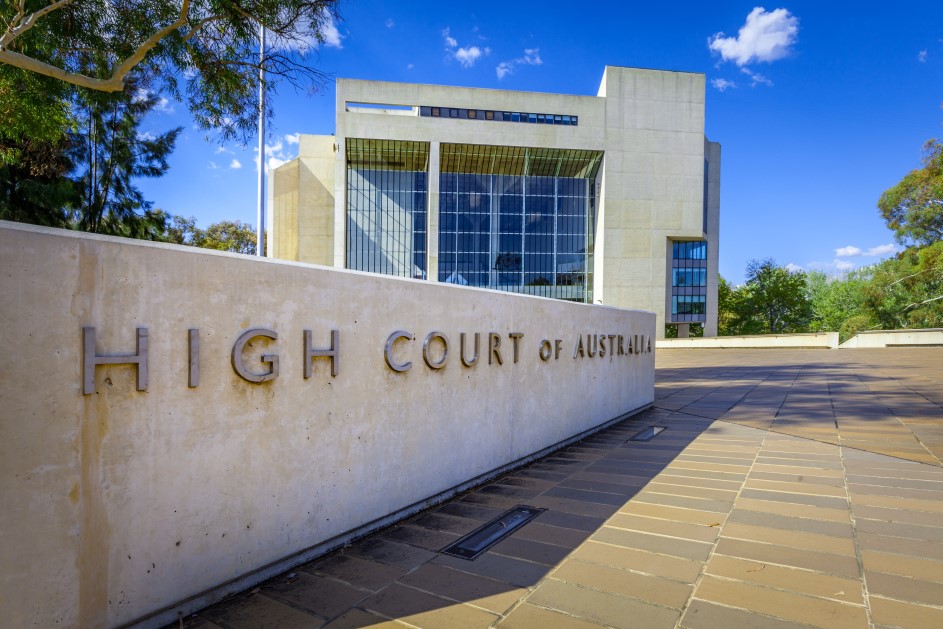An important notice has been issued in the AAI & MTA car dealer add-on insurance class action.
See the notice and find more information here to register.
Content warning
The following article mentions child sexual abuse
We join survivors of child abuse and legal advocates around the country in welcoming a landmark High Court decision to overrule the use of a permanent stay in an historical child abuse case.
In the case centred on a survivor known as GLJ, the High Court found that it was not in the interests of justice for the proceeding to be permanently halted through a stay.
The decision means many other historical abuse cases that have been in limbo for months pending today’s outcome can now proceed without the threat of a permanent stay.
Child abuse a life sentence for survivors
Survivors of child sexual abuse face a lifetime sentence.
Through no fault of their own, victims of child sexual abuse face an increased risk of mental illness, drug use, incarceration, and a long list of diseases. Still, until recently, many had been barred from claiming compensation due to time limitations.
Before the Royal Commission into Institutional Responses to Child Sexual Abuse, personal injury claims arising from child abuse were subject to the same limitation period as any other type of personal injury claim – 3 years from the date of the abuse or the victim’s 18th or 21st birthday, whichever was later.
We now know that it takes an average of more than 20 years for a victim of child sexual abuse to tell someone about it.
For many victims, the statute of limitations to seek compensation relating to the abuse had expired long before they told anyone about it or had built up the resilience required for litigation.
On 15 December 2017, the Royal Commission presented its final report to the Governor-General, one of its many recommendations being that all State and Territory governments should remove any limitation period that applies to a claim for damages for child abuse.
Thankfully, all State and Territory governments have removed limitation periods for child abuse claims. As a result, survivors of child abuse who would previously have been statute-barred (being outside the limitation period) have been able to commence claims seeking compensation for personal injury arising from their experience of abuse.
But until this announcement, the emerging trend of applications for permanent stays of proceedings has threatened to silence them again.

What is a permanent stay of proceedings?
A permanent stay of proceedings – also known as the ‘dead man’s defence’ – is a halt to legal proceedings granted by the Court if they find that the defendant cannot receive a fair trial.
In assessing an application for a stay of proceedings, the Court will consider:
- The availability of the alleged abuser to give evidence or respond to the allegations
- The availability of other key witnesses
- The fallibility of memory due to the passage of time
- The availability of records or other documentary evidence
- The existence of buildings or places where the abuse occurred.
In the years since limitation periods have been removed for child sexual abuse survivors to claim compensation, several defendants have been granted permanent stays.
In a recent case, a victim sought compensation from the State of Queensland for sexual abuse experienced in the 1950s-60s as a ward of the State. The Court granted a permanent stay as, at the time of the claim, all alleged abusers and most key witnesses had died, and there were no written records relating to abuse.
In another case against the Scout Association of Australia New South Wales Branch, the Court granted a permanent stay, even though the perpetrator was criminally convicted of sexual abuse and was still alive and able to give evidence.
The Scouts sought a permanent stay on the basis that they could not receive a fair trial as there were insufficient records, no other key witnesses were available to give evidence, and the abuser’s evidence would likely seek to shift the blame for his criminal behaviour onto the institution.
What are the consequences of permanent stays?
At the Royal Commission, survivors were promised a different future. However, in addition to preventing survivors of child abuse from claiming compensation, grants of permanent stays have threatened to recreate the same legal barrier as previous limitation periods.
Regular grants of permanent stays reward institutions who ignore complaints of abuse by effectively “letting them off the hook” if the abuser is dead or incapacitated and creates an incentive for institutions to keep inadequate records of investigations deliberately.
Despite the outpouring of assurances following the Royal Commission about “seeing” and “hearing” survivors of institutional child abuse, the trend towards grants of permanent stays effectively silenced and re-traumatised survivors all over again.
Ensuring justice for survivors of child sexual abuse
The High Court ruling is an important step towards justice for abuse survivors.
In this case, the survivor, GLJ, alleges that in 1968, at the age of 14, she was sexually assaulted by Father Anderson, a priest within the Diocese of Lismore.
The Diocese argued that as neither they nor Father Anderson had notice of GLJ’s allegation at the time of his death in 1996, they could not question Father Anderson or other key witnesses about the allegation and, therefore, cannot receive a fair trial and a permanent stay of proceedings was granted.
GLJ appealed to the High Court to have the permanent stay overturned so that a trial could proceed, and other survivors and legal advocates have waited with bated breath for its decision.
In reaching a judgement, the High Court found that a new landscape has arisen following the Royal Commission findings and the removal of time limitation periods in historical abuse cases and, within that landscape, the Diocese’s argument that a trial would be unfair must be rejected.
The High Court confirmed that permanent stays are only to be granted by Courts as an absolute last resort and the facts in GLJ did not warrant such a finding.
This decision effectively ends the use of an unfair legal tactic, giving survivors, especially those who have decided against bringing a claim because of the threat of permanent stays, renewed hope and confidence in the support of the Court.
If you're a survivor of childhood abuse, we know that no amount of compensation can take away the pain caused. Our experienced, trauma-trained lawyers are here to support you and help you get the justice you deserve. You are not alone. We will carefully review your circumstances and provide you with the best advice. Send us a message or call us on 1800 305 568.
We're here to help
Contact us today
Our team of experienced abuse lawyers are here to help. You are not alone.
If you or someone you love is a survivor of childhood abuse, we are here to support you and get the justice you deserve.
It doesn't cost you anything to know where you stand
Office locations
We’re here to help. Get in touch with your local office.
Select your state below
- VIC
- QLD
- NSW
- ACT
- WA
- SA
- TAS
- NT
We have lawyers who specialise in a range of legal claims who travel to Australian Capital Territory. If you need a lawyer in Canberra or elsewhere in Australian Capital Territory, please call us on 1800 675 346.
We have lawyers who specialise in a range of legal claims who travel to Tasmania. If you need a lawyer in Hobart, Launceston or elsewhere in Tasmania, please call us on 1800 675 346.
/MB_Michelle-James_Brisbane_300x300px_WEB.jpg)
/MBL_ZoePapageorgiou_2022-01-13_300x300px.jpg)

/redress%20thumbnail.jpg)
/call%20for%20witnesses%20thumbnail.jpg)
/beyond%20compensation%20thumbnail.jpg)